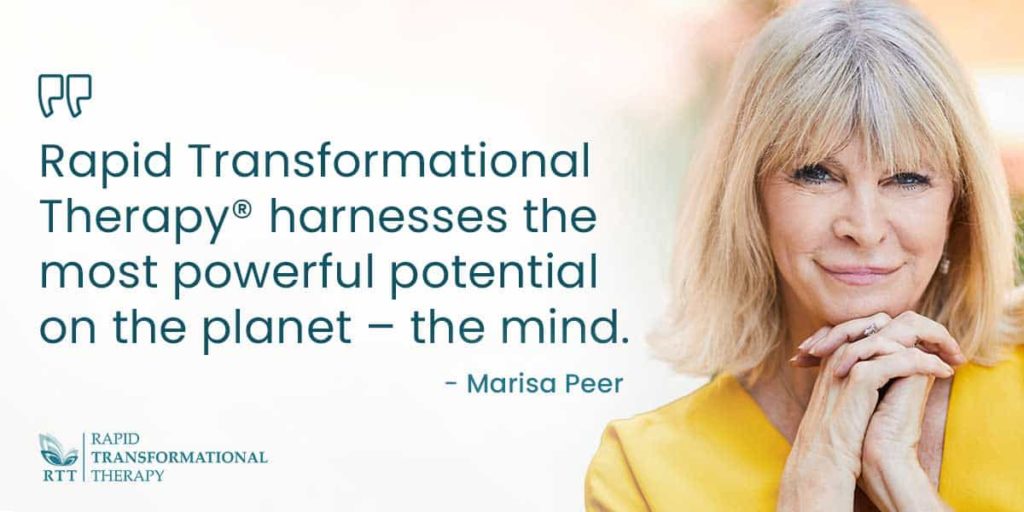Do you feel like your life is pointless?
Have you ever quietly thought to yourself, “I hate my life,” or maybe you felt like screaming it out loud?
It’s understandable. While it may sound cliché, the fact is, life can be hard.
The first thing you should know is that feeling like you hate your life is entirely normal.
You’re not mentally unstable or crazy. Many people feel overwhelmed by feelings of self-loathing and hopelessness at different stages of their lives.
However, the second thing you should know is that you don’t have to feel this way. The reasons for hating your life can be varied and complex, but they aren’t permanent.
There are steps you can take that will help change your outlook and, ultimately, make you enjoy your life and be proud of it.
In this article, we’ll show you step-by-step how to stop feeling like you hate your life and develop a newfound passion and enthusiasm for it.
You’ll also learn:
- The reasons behind you thinking, “I hate my life”
- Six powerful steps to changing your life
- How to use the power of the mind to create a life you love
Why Do I Hate My Life?

The feeling of hating life is not uncommon. Even people we consider highly successful have felt the same way at some point in their lives.
There’s no shame in feeling this way. Experiencing feelings of self-loathing and hating life is a normal reaction to the difficult situations many of us face throughout our lives.
It’s possible that you didn’t achieve the goals that you set for yourself. You’ve probably made mistakes you regret. Maybe you aren’t where you thought you would be, or maybe you are feeling like a failure.
You might even hate your life because of a dysfunctional life philosophy. Your understanding of who you are, why you’re here, and what you’re supposed to be doing might not be aligned with your authentic self.
Whichever the reason, hating your life really means one thing; that your life has stagnated and you haven’t made any meaningful progress.
When your life reaches a stagnant point, you may feel some or all of these things:
- Your circumstances and how things are in your life seems bad
- You see no point in what you’re doing and how you’re living at the moment
- You think you are unable to change and improve your life
When you feel like you’re stuck in a bad place, it’s normal to hate your life.
So if you find yourself constantly thinking, “I hate my life,” then the answer is to move from where you are and get to somewhere better.
In other words, you need to progressively steer your life towards a meaningful goal.
So how can you start progressing towards a meaningful goal? Here are six steps to begin with.
6 Steps To Develop Meaning and Progress in Your Life

1. Take care of the basics
Science has proven that your overall health has a significant impact on your mood.
Studies have shown that unhealthy habits, such as a lack of exercise, a lack of sleep, and a poor diet, can cause depression and mood disorders.
Feeling like you hate life could be a symptom of any one of these. Therefore, it’s crucial to get the basics right first before making any other changes in your life.
Even if these aren’t the direct cause for feeling like you hate your life, simply working on them can help change your perspective.
For some people, getting the basics right is already a massive undertaking by itself. Making your health a priority and progressively improving it could give your life a sense of meaning and direction.
This renewed sense of purpose and improved health could help you develop a deeper appreciation for your life.
No matter what the state of your health is right now, set small goals to improve it. Create a structure in your life which prioritizes sleep, nutrition, and regular exercise.
You may find that seeing improvements and progress in your health is enough to start appreciating your life more.
2. Develop mindfulness
Marisa Peer, a world-renowned therapist who’s helped thousands of people worldwide, has observed that most of her clients who came with an “I hate my life” problem actually had deeper issues they needed to address.
Marisa believes that in most cases the root cause of hating life is the feeling that you’re not enough.
The feeling of not being enough leads to thinking that you don’t deserve happiness or good things from life.
You stop going after what you want and settle for a mediocre life that feels pointless and empty. Consequently, you start hating it.
In most cases, it’s not that you hate life; you have certain dysfunctional beliefs and issues that keep you stuck in dire circumstances.
One way to explore these issues is by developing mindfulness.
Mindfulness is a quality of the mind that allows you to bring conscious awareness to your everyday activities and your inner dialog.
By practicing mindfulness, you are able to shine the light on negative thinking patterns and disempowering beliefs or insecurities that otherwise are hidden from your conscious awareness.
The next time you say or think, “I hate my life,” ask yourself, “What is it about my life I wish was different?”
For example, if you wished you had a better relationship, ask yourself, “What’s stopping me from finding a better partner or building a better relationship?”
You may start getting answers such as, “I don’t think I can find someone better,” or, “This person is the only person who will love me.”
These are not facts, but beliefs—and they are stopping you from building a better life.
List down each of these limiting beliefs in a journal.
It’s normal to feel anxious during this exercise. Be kind to yourself, and allow yourself to explore these issues without judgment.
3. Question your limiting beliefs

Once you’re more aware of your issues, it’s time to begin making changes. The first step is to start questioning your limiting beliefs.
If you’ve always had a certain mindset, understandably, you won’t be able to change it overnight. Don’t worry, we’re not asking you to jump from, “I hate my life,” to, “My life is awesome!” immediately.
The key is to start small. You may not change your limiting beliefs instantly, but you can start by simply doubting them.
At the same time, you can reinforce empowering beliefs and make positive changes in your actions and behavior.
For example, you may hate your life because you dislike your job. You might believe that you’re stuck where you are because you have no prospects in other, more rewarding careers.
However, instead of thinking, “I’ll never find a better job,” reframe your thoughts to, “If I send my resume to 10 job vacancies, what are the chances that one of them will respond?”
This way, you’re changing a limiting belief from a statement to a question—and you might be surprised by the answer.
By questioning your limiting beliefs, you’ll start acting differently and make better decisions. These small changes will cumulatively snowball into better, more significant changes in your life.
However, if you find that you’re struggling with challenging your beliefs, it could be because of resistance that comes from your subconscious mind—the deeper part of the mind where roots of most of our issues lie.
In that case, it may be helpful to contact an RTT® therapist. Rapid Transformational Therapy® (RTT®) is specifically designed by Marisa Peer to remove mental blocks in your subconscious and cultivate a more empowered mindset, as quickly as in one to three sessions.
4. Compete only with yourself
One of the biggest reasons you hate your life is that you’re comparing it to someone else’s. It’s especially easy to do nowadays with instant access to social media.
Studies have shown that social media increases social comparison—leading to reduced self-esteem and increased depression and anxiety.
If you constantly compare yourself to someone else, you’ll never make any meaningful progress. There will always be someone wealthier, more successful, more beautiful, and more athletic than you.
Instead, start competing with yourself. Strive to be better than you were yesterday, and measure your progress.
Set SMART goals for things you’d like to achieve. Take note of each successful milestone and, more importantly, celebrate them!
When you notice your improvements, you’ll start to feel more invested in your own life. Soon enough, you’ll begin to develop a passion for what you do and wake up every day with a renewed sense of purpose.
5. Have fun!

It goes without saying that we hate things we don’t enjoy—so go out and enjoy your life!
Many of us suffer from being overworked. If you are living in the U.S., you’re a part of the most overworked nation in the world.
Consequently, we neglect doing things we enjoy because there’s always something else that’s “more important.”
Well, guess what? As it turns out, having fun is vital for our mental, emotional, and physical health.
Having fun is crucial for stress relief, improving brain function, stimulating your mind and creativity, and improving your relationships and connection to others—all essential components of a good life.
When you prioritize fun, life becomes that much more interesting. You’ll be motivated to get out of bed and look forward to something exciting in the future. In other words, fun is what makes life worth living.
Bear in mind that “fun” looks different for everyone—some people’s idea of fun could be bungee jumping, while others could just want to read a book on a quiet beach.
Whatever your idea of fun is, remember to prioritize and plan for it. Schedule an adventure or a personal getaway for yourself, so you have a chance to enjoy and appreciate life.
6. Practice gratitude and pay it forward
Sometimes hating your life is a result of living only for yourself. You may not see a point in simply existing without having a higher purpose.
In that case, you can develop your life’s mission by practicing gratitude and contributing to a noble cause.
Studies show that people who are generous and those who practice gratitude report a greater sense of purpose and meaning in their lives.
Doing so trains your mind to focus on positive emotions such as joy, love, and contentment.
Simultaneously, you also compensate for your brain’s natural tendency to focus on threats, worries, and the negative aspects of life.
Most importantly, joining a noble cause will help you foster a deeper connection to other people.
Your life will have a more profound sense of meaning and purpose by being a part of a like-minded community with a shared, higher goal.
Reprogram Your Mind For Positive Thinking and Success

When you hate your life, it’s usually because of a dysfunctional mindset and limiting beliefs that hold you back.
It may take a while, but with discipline and consistency, you can change your perspective.
Once you adopt a more empowering mindset, you’ll start to think and act more positively and design a better life—one that you can appreciate.
However, there may be times when even your best efforts aren’t enough to change your mindset.
If you’ve been practicing these tips and still find yourself thinking, “I hate my life,” it could be because of a deeper, more profound reason.
You may be suffering from mental blocks formed from previous trauma or trauma from your childhood that’s hidden deep in your subconscious mind.
Because they’re in your subconscious, you may not even be aware that these mental blocks are affecting your beliefs and your behavior.
In this situation, Rapid Transformational Therapy® (RTT®) can help.
Strive for a meaningful life
Don’t subscribe to the belief that life is terrible and you’re powerless to do anything about it.
Regardless of where you are in life, you can make better decisions today, changing where you are tomorrow.
Remember, the goal in life isn’t to be free from struggle but to struggle towards a meaningful goal.
Connect with an RTT® therapist and take the first step towards developing meaning and appreciation for your life today.


